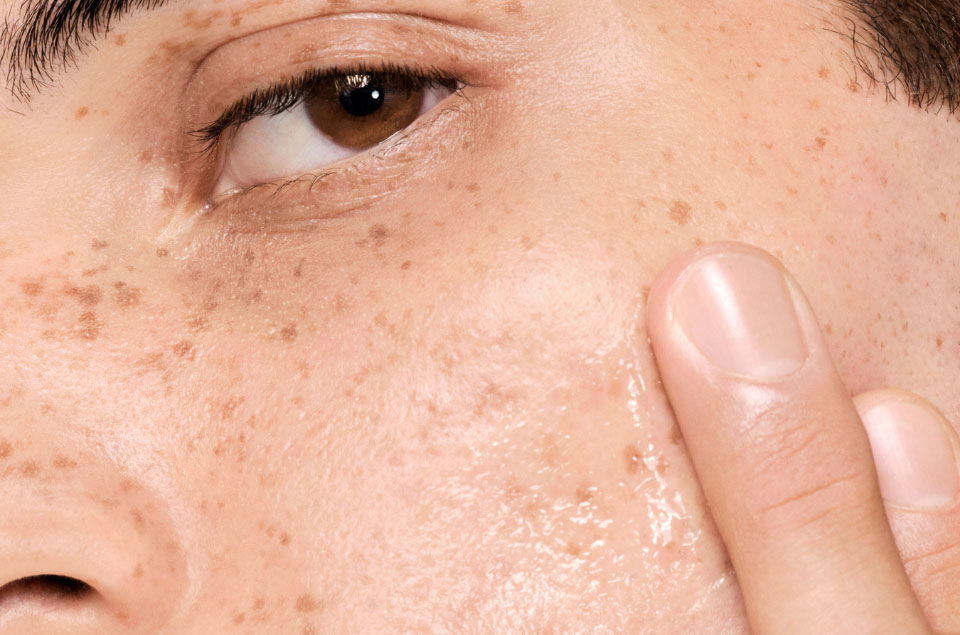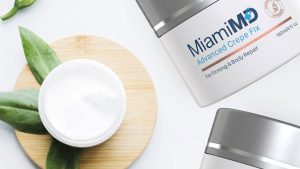Why Is My Face So Oily?

Ever wondered why your face feels greasy by the middle of the day or why your makeup doesn’t seem to stay put? You’re not alone! Many people deal with oily skin, and it can be a little annoying.
Oily skin happens when your skin produces too much sebum, which is an oily substance that helps protect your skin. While sebum is good for keeping your skin healthy, too much of it can lead to problems.
Let’s take a closer look at the signs of oily skin and some tips to help manage it, including non-comedogenic skincare products and other tricks.
What Are Signs of Oily Skin?
If you’re not sure whether you have oily skin, here are some things to watch out for. These are common signs that your skin might be producing more oil than you need.
Shiny or Greasy Appearance
One of the most noticeable signs of oily skin is that your face may look shiny or greasy, especially in areas like your forehead, nose, and chin. This area is known as the T-zone, and it tends to produce more oil than other parts of your face. If you notice a shiny look even after washing your face, it’s likely due to excess oil.
Clogged Pores
When there’s too much oil on your skin, it can mix with dead skin cells and clog your pores. Clogged pores can appear larger than usual and feel bumpy when you touch your skin. This is because the extra oil and dirt get trapped inside, making your pores look more noticeable.
Blackheads or Blemishes
Excess oil can also lead to blackheads or pimples. When oil, dirt, and dead skin cells get trapped in your pores, it can cause a blockage. Blackheads happen when the clogged pore stays open, and a dark spot forms.
On the other hand, if the clogged pore closes up, it can turn into a pimple or blemish. People with oily skin tend to experience these issues more often than those with dry or normal skin.
What Are Some Common Causes of Oily Skin?
Several factors can cause your skin to produce extra oil. Let’s explore some of the most common causes.
Hormones
Hormonal changes and fluctuations play a big role in the amount of oil your skin produces, as well as your skin health and skin concerns overall. When your hormones are imbalanced, you might experience excess oil production. This oil secretion is especially common during puberty, pregnancy, or even around your monthly cycle.
A study found that women with oily skin had increased sebum production the week before their period and during their period. The week with the least amount of sebum production was the second week of their menstrual cycle (1). The hormone called androgen is mainly responsible for increasing oil production, and it affects both men and women.
Diet
What you eat can also affect your skin. Foods that are high in sugar or dairy products may cause your skin to produce excess sebum. Eating a lot of processed or fried foods might not help either.
Nutritionist Zoe Dent says, “High sugar foods like soft drinks, lollies, and highly processed foods including take-out fast food (burgers, fries, pizza) are all no-gos. Milkshakes and ice cream are also key offenders when it comes to acne breakouts and oily skin due to the double whammy dairy and sugar combination” (2). While diet isn’t the only reason for oily skin, it can definitely make a difference.
Lack of Moisture
It might sound strange, but if your skin isn’t getting enough moisture, it may actually become oilier. “Even if you have an oily face, skipping moisturization is a mistake,” says celebrity makeup artist Daniel Bauer (3). When your skin feels dry, your sebaceous glands can overproduce sebum to try and compensate for the lack of hydration. Using a moisturizer, even if you have oily or acne-prone skin, can help balance things out.
Genetics
Sometimes, oilier skin runs in the family. If your parents or other family members have oily skin, there’s a good chance you might have it. too. Genetics can determine how large your oil glands are and how much oil they produce.
How To Ease Oily Skin
Now that we know what causes oily skin and what the signs are, let’s look at some simple ways to help manage it. You don’t have to let oily skin get you down; there are easy changes you can make to help your skin look and feel better.
Choose a Gentle Cleanser
When it comes to oily skin, the cleanser you use is very important. “Cleansing dissolves away excess dirt, make-up, and bacteria on your skin; not cleansing is likely to leave your pores clogged and your skin more at risk of breaking out,” says skin wellbeing expert Mimi Luzon (4).
You want to use a gentle facial cleanser that doesn’t strip your skin of all its natural oils. Stripping the skin can cause it to overproduce oil to make up for what was lost.
Look for a face wash that is specifically made to be kind to oily skin, like Miami MD’s Facial Cleanser. It helps clean your skin without being too harsh. Make sure to wash your face twice a day — once in the morning and once before bed.
Exfoliate Regularly
Exfoliating helps to remove dead skin cells and keep your pores clear. This is especially important for oily skin since it can help prevent clogged pores that cause blackheads and breakouts. However, you should be careful not to exfoliate too often. Once or twice a week is usually enough.
“Those with oily skin may find salicylic acid, a type of chemical exfoliant, to help unclog the pores in addition to helping with exfoliation,” says double-board certified dermatologist Brendan Camp, MD (5). Using an exfoliator with gentle ingredients like salicylic acid or glycolic acid can help keep your skin clean and smooth without irritating it.
Simplify Your Skincare Routine
It’s tempting to try every product out there to fix oily skin, but sometimes less is more, especially when it comes to adding new products. Too many products can irritate your skin and cause it to produce more oil. Stick to a basic skin routine with just a cleanser, moisturizer, and sunscreen. This will help keep your skin balanced and less likely to get oily.
Always Moisturize
A lot of people with oily skin think they don’t need to use a moisturizer, but that’s not true! Skipping moisturizer can actually make your skin produce more oil. Use a lightweight, oil-free moisturizer to keep your skin hydrated without adding extra shine. This will help keep your skin soft and balanced, so you won’t have to worry about it getting greasy throughout the day.
The Bottom Line
Oily skin can be a little frustrating, but with the right skincare routine, you can definitely keep it under control.
Remember, it’s normal to have some oil on your skin. It actually helps keep your skin healthy and protected. The key is finding the right balance so that your skin doesn’t feel greasy or lead to other problems like breakouts. By choosing gentle skincare products, exfoliating regularly, and keeping your routine simple, you can help your skin look its best.
With these tips, you can start managing your oiliness and feel confident in your healthy skin every day!
Sources:
- Rhythm of sebum excretion during the menstrual cycle | PubMed
- The foods that can cause oily skin and what to eat instead | Vogue Australia
- Makeup steps for oily skin, according to the experts | Vogue India
- The 18 best cleansers for 2024: For every skin type and budget | Marie Claire UK
- How to Safely Exfoliate Your Face, According to Dermatologists | Prevention





